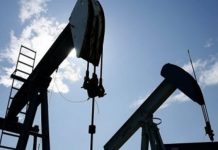BACK in the early 1990s, Mobil was exploring for oil in Zimbabwe when it came across large hydrocarbon resources in the Cabora Bassa Basin.
The petroleum giant explored over an area extending all the way from Victorian Falls in the west of the country through to the Cabora Bassa Basin in the east.
It identified and mapped the massive Muzarabani anticline in Africa, which has an area of more than 200 square kilometres, under closure, at favourable depths to host a conventional gas target.
Eventually, however, Mobil concluded that the petroleum system was more likely to be gas prone rather than oil prone.
This is not the result that Mobil was after. There was no structured market for gas in the region at the time.
Highlighting this fact was the Pande and Temane gas fields onshore Mozambique of four to five trillion cubic feet. Discovered decades earlier, in the 1960s by Gulf Oil, these gas projects had changed hands multiple times by the time Mobil came to Zimbabwe, yet they were not developed as they couldn’t be monetised.
Against that backdrop, Mobil saw little point in trying to discover more gas in the region so relinquished the Cabora Bassa project.
The early 90s saw a pullback in exploration in Africa, particularly in frontier jurisdictions onshore. Majors that had been exploring across the continent left as petroleum prices crashed. BP left Tanzania, while Shell left Kenya.
Nearby countries, including Kenya and Uganda, have since promoted their petroleum potential. This, along with previous exploration programs, attracted a number of juniors that picked up where the majors left off in the Albertine Graben in Uganda.
These junior explorers re-evaluated the data left behind by the majors and saw some overlooked potential in these rift basin plays. That work encouraged the likes of Tullow Oil to farm-in to their acreage, acquire some additional seismic data and drill exploration wells, leading to discoveries.
Zimbabwe, meanwhile, never bothered to promote its petroleum potential, instead promoting its mineral riches including gold, platinum, diamonds at the time.
IVZ’s Cabora Bassa Project
For years the Cabora Bassa Project, which comprises 250,000 acres in the most prospective part of the Cabora Bassa Basin, remained untouched and overlooked and Mobil’s extensive project data and reports were never made public.
The country’s political and economic situation and changes to investment laws under former President Mugabe also worked against the petroleum sector — Zimbabwe was essentially uninvestable from a foreign investment point of view.
In 2010, 25 years after Mobil left Zimbabwe, Zimbabwean national, Scott Macmillan — a former Woodside Energy and AWE Ltd engineer, and now Invictus Energy Ltd (ASX: IVZ) MD — got his hands-on Mobil’s $30 million dataset.






